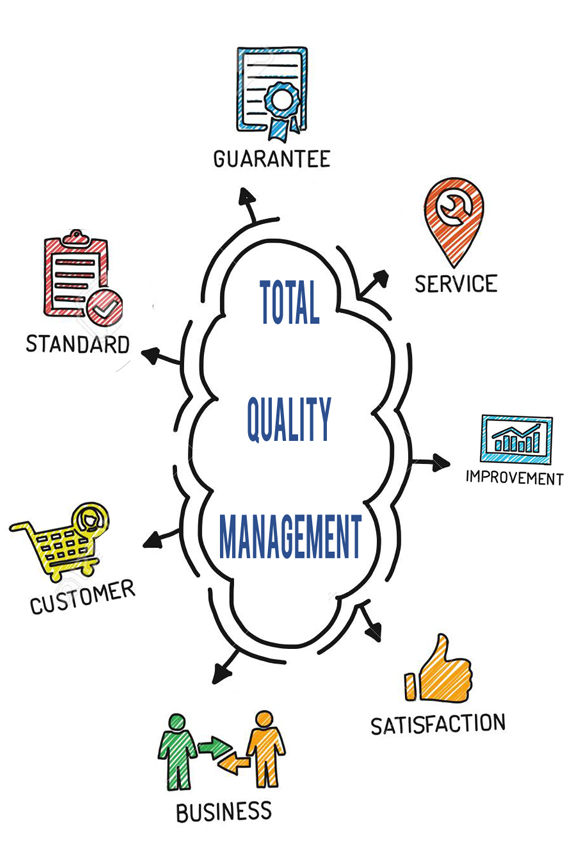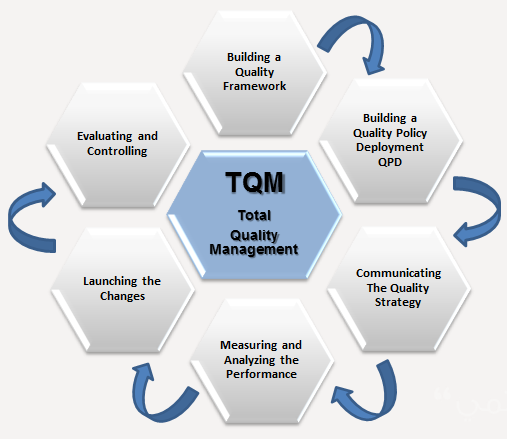- +44 800 052 2424 +44 800 052 2425
- info@ukglobal.uk www.ukglobal.uk

TOTAL QUALITY MANAGEMENT Total Quality Management (TQM) is a comprehensive and structured approach to organizational management that seeks to improve the quality of products and services through ongoing refinements in response to continuous feedback. TQM requirements may be defined separately for a particular organization or may be in adherence to established standards, such as the International Organization for Standardization's ISO 9000 series. TQM can be applied to any type of organization; it originated in the manufacturing sector and has since been adapted for use in almost every type of organization imaginable, including schools, highway maintenance, hotel management, and churches. As a current focus of e-business, TQM is based on quality management from the customer's point of view. TQM processes are divided into four sequential categories: plan, do, check, and act (the PDCA cycle). In the planning phase, people define the problem to be addressed, collect relevant data, and ascertain the problem's root cause; in the doing phase, people develop and implement a solution, and decide upon a measurement to gauge its effectiveness; in the checking phase, people confirm the results through before-and-after data comparison; in the acting phase, people document their results, inform others about process changes, and make recommendations for the problem to be addressed in the next PDCA cycle. |
|
THE PRINCIPLES OF QUALITY MANAGEMENT
|
 |
|
|
 |
|